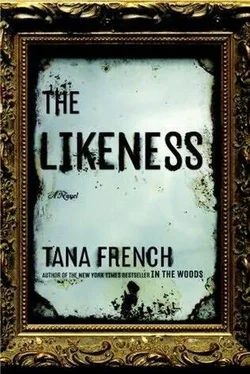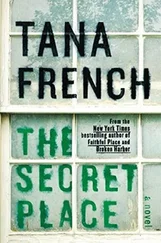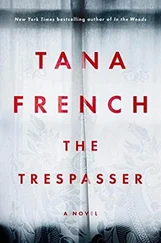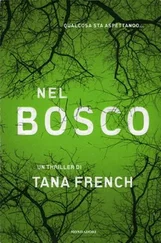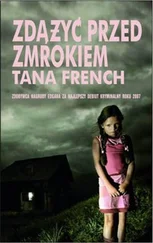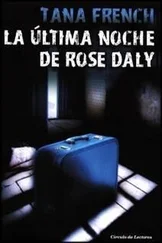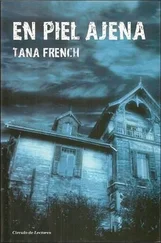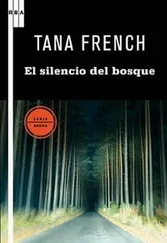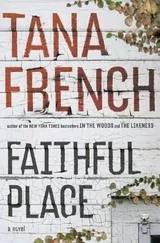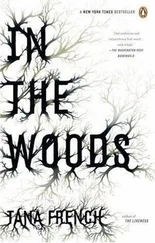“I wanted to warn you,” Sam said abruptly. “Mackey said no. He was pretty insistent about it, and I wasn’t thinking straight enough to… I should’ve. I’m sorry.”
Obviously Frank, like everyone else in my bloody universe, had heard the Operation Vestal rumors. “He wanted to see how I’d take it,” I said. “Checking my nerve. And he’s good at getting what he wants. It’s OK.”
“This Mackey. Is he a good cop?”
I didn’t know how to answer that. “Good cop” isn’t a phrase we take lightly. It means a vast complex constellation of things, and a different one for every officer. I wasn’t at all sure that Frank fit Sam’s definition, or even, come to think of it, mine. “He’s smart as hell,” I said, in the end, “and he gets his man. One way or another. Are you going to give him his three days?”
Sam sighed. “If you’re all right with staying in this weekend, then yeah, I’d say I will. It’ll do no harm, actually, keeping this case under the radar till we’ve some idea what we’re dealing with-an ID, a suspect, something. It’ll keep the confusion down. I’m not mad about giving her friends false hope, but sure, I suppose it could soften the blow-having the few days to get used to the chance that she might not make it…”
It was shaping up to be a gorgeous day; the sun was drying the grass and it was so quiet I could hear tiny insects zigzagging in and out among the wild-flowers. There was something about the green hillsides that made me edgy, something stubborn and secretive, like a turned back. It took me a second to figure out what it was: they were empty. Out of all Glenskehy, not one person had come to see what was going on.
Out in the lane, screened from the others by trees and hedges, Sam pulled me tight against him.
“I thought it was you,” he said into my hair. His voice was low and shaking. “I thought it was you.”
I didn’t actually spend the next three days watching crap telly, the way I’d said to Frank. I’m not good at sitting still to begin with, and when I’m edgy I need to move. So-I’m in this job for the thrills, me-I cleaned. I scrubbed, hoovered and polished every inch of my flat, down to the baseboards and the inside of the cooker. I took down the curtains, washed them in the bath and pegged them to the fire escape to dry. I hung my duvet off the windowsill and whacked it with a spatula to get the dust out. I would have painted the walls, if I’d had paint. I actually considered putting on my dork disguise and finding a DIY shop, but I’d promised Frank, so I cleaned the back of the cistern instead.
And I thought about what Frank had said to me. You, of all people… After Operation Vestal I transferred out of Murder. DV might not be much of a challenge by comparison, but God it’s peaceful, although I know that’s a strange word to choose. Either someone hit someone or he didn’t; it’s as simple as that, and all you have to do is figure out which one it is and how to make them knock it off. DV is straightforward and it’s unequivocally useful, and I wanted that, badly. I was so bloody tired of high stakes and ethical dilemmas and complications.
You, of all people; have you gone desk on me? My nice work suit, ironed and hung on the wardrobe door ready for Monday, made me feel queasy. Finally I couldn’t look at it any more. I threw it in the wardrobe and slammed the door on it.
And of course I thought, all the time, under everything I did, about the dead girl. I felt like there must have been some clue in her face, some secret message in a code only I could read, if I had just had the wits or the time to spot it. If I’d still been in Murder I would have nicked a crime-scene shot or a copy of her ID, taken it home with me to look at in private. Sam would have brought me one if I’d asked, but I didn’t.
Somewhere out there, sometime in these three days, Cooper would be doing the autopsy. The idea bent my brain.
I had never seen anyone who looked anything like me before. Dublin is full of scary girls who I swear to God are actually the same person, or at least come out of the same fake-tan bottle; me, I may not be a five-star babe but I am not generic. My mother’s father was French, and somehow the French and the Irish combined into something specific and pretty distinctive. I don’t have brothers or sisters; what I mainly have is aunts, uncles and large cheerful gangs of second cousins, and none of them look anything like me.
My parents died when I was five. She was a cabaret singer, he was a journalist, he was driving her home from a gig in Kilkenny one wet December night and they hit a slick patch of road. Their car flipped three times-he was probably speeding-and lay upside down in a field till a farmer saw the lights and went to investigate. He died the next day; she never made it into the ambulance. I tell people this early on, to get it out of the way. Everyone always gets either tongue-tied or gooey (“You must miss them so much”), and the better we know each other, the longer they feel the gooey stage needs to last. I never know how to answer, given that I was five and that it was more than twenty-five years ago; I think it’s safe to say I’m more or less over it. I wish I remembered them enough to miss them, but all I can miss is the idea, and sometimes the songs my mother used to sing me, and I don’t tell people about that.
I was lucky. Thousands of other kids in that situation have slipped through the cracks, fallen into foster care or nightmare industrial schools. But on their way to the gig my parents had dropped me off to spend the night in Wicklow with my father’s sister and her husband. I remember phones ringing in the middle of the night, quick footsteps on stairs and urgent murmuring in the corridor, a car starting, people going in and out for what seemed like days, and then Aunt Louisa sitting me down in the dim living room and explaining that I was going to stay there for a while longer, because my mother and father weren’t coming back.
She was a lot older than my father, and she and Uncle Gerard don’t have kids. He’s a historian; they play bridge a lot. I don’t think they ever really got used to the idea that I lived there-they gave me the spare room, complete with a high double bed and small breakable ornaments and an inappropriate print of Venus Rising, and looked faintly worried when I got old enough that I wanted to put up posters of my own. But for twelve and a half years they fed me, sent me to school and gymnastics classes and music lessons, patted me vaguely but affectionately on the head whenever I was within reach, and left me alone. In exchange, I made sure they didn’t find out when I mitched off school, fell off things I shouldn’t have been climbing, got detention or started to smoke.
It was-this always seems to shock people all over again-a happy childhood. For the first few months I spent a lot of time at the bottom of the garden, crying till I threw up and yelling rude words at neighborhood kids who tried to make friends. But children are pragmatic, they come alive and kicking out of a whole lot worse than orphanhood, and I could only hold out so long against the fact that nothing would bring my parents back and against the thousand vivid things around me, Emma-next-door hanging over the wall and my new bike glinting red in the sunshine and the half-wild kittens in the garden shed, all fidgeting insistently while they waited for me to wake up again and come out to play. I found out early that you can throw yourself away, missing what you’ve lost.
I weaned myself on the nostalgia equivalent of methadone (less addictive, less obvious, less likely to make you crazy): missing what I had never had. When my new mates and I bought Curly Wurly bars at the shop, I saved half of mine for my imaginary sister (I kept them at the bottom of my wardrobe, where they turned into sticky puddles and got in my shoes); I left room in the double bed for her, when Emma or someone wasn’t sleeping over. When horrible Billy MacIntyre who sat behind me in school wiped snots on my plaits, my imaginary brother beat him up till I learned to do it myself. In my mind adults looked at us, three matching dark heads all in a row, and said, Ah, God, you’d know they’re family, aren’t they the spit of each other?
Читать дальше
